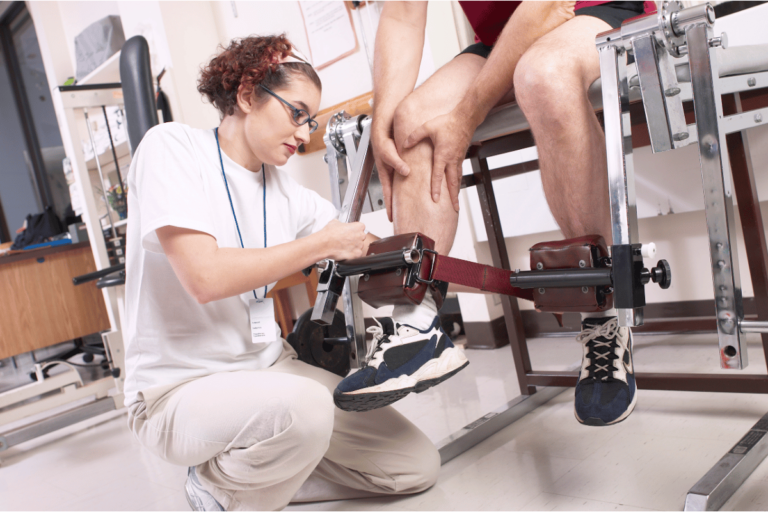The Ultimate Guide to Sleep Optimization: Rest Better, Live Better
Is your sleep quality holding you back from living your best life? In our fast-paced world, getting good sleep can seem like a dream. Yet, learning to sleep well is key for our health. This guide will show you how to improve your sleep, using your body’s natural rhythms and better sleep habits.
Did you know 1 in 3 adults don’t get enough sleep? This shows a big problem affecting many. With 20-40% of adults having poor sleep habits and up to 70 million Americans with sleep disorders, we face a big sleep crisis.
Good sleep is not just about feeling awake. It’s essential for our health. It impacts our mood, stress, productivity, and thinking skills. By learning about our sleep patterns and using smart strategies, we can change our nights and days for the better.
In this detailed guide, we’ll dive into sleep science, share tips for a great sleep space, and explain how diet, exercise, and managing stress help sleep. Whether you’re a night owl or just want to feel better, this guide is your path to better sleep and a more lively life.
Understanding the Importance of Sleep
Sleep is key to our well-being. It affects our physical health, brain function, and mood. Let’s see how sleep impacts our lives and why it’s vital to get enough sleep.
The Impact of Sleep on Overall Health
Good sleep is essential for health. Adults need seven hours of sleep each night. Without it, we risk weight gain and poor blood sugar control.
Not getting enough sleep can also lead to serious health problems. These include heart disease, diabetes, and obesity. It’s crucial to prioritize sleep for our health.
Sleep’s Role in Cognitive Function
Sleep boosts our brain power. It helps with memory, solving problems, and creativity. Kids need nine hours, while teens need eight to ten hours.
Adults need at least seven hours. Less sleep can make it hard to focus and make decisions.
How Sleep Affects Emotional Well-being
Sleep is vital for our emotions. Not enough sleep can make us irritable and moody. It can also increase stress and lead to anxiety and depression.
Getting enough sleep helps us stay emotionally balanced. It helps us face daily challenges better.
| Age Group | Recommended Sleep Duration | Effects of Sleep Deprivation |
|---|---|---|
| School-age Children | At least 9 hours | Decreased attention span, impaired learning |
| Teens | 8-10 hours | Mood swings, reduced academic performance |
| Adults | 7+ hours | Impaired cognitive function, increased health risks |
| Older Adults | 7+ hours | Deteriorated sleep quality, cognitive decline |
Understanding sleep’s importance is vital. It helps us stay healthy, think clearly, and feel good. By valuing sleep, we can live better lives and avoid health problems.
The Science Behind Sleep Cycles
Sleep cycles are key to our health and happiness. They involve complex brain interactions, especially with adenosine. Knowing how they work can make us sleep better and wake up feeling great.
Adenosine builds up in our brain when we’re awake. It makes us feel sleepy as the day goes on. At the same time, dopamine, which helps us feel awake, goes down. This change makes us tired by the end of the day.
Our brain goes through different stages when we sleep. Deep sleep, which is 10-20% of our sleep, helps clear out adenosine. This is important for feeling alert and full of energy when we wake up.
“Sleep is the golden chain that ties health and our bodies together.” – Thomas Dekker
Studies show that regular sleep is vital for health. Bad sleep habits can make it hard to fall asleep, disrupt our sleep, and make us tired during the day. Understanding and following our natural sleep cycles can boost our health and brain function.
| Sleep Stage | Duration | Characteristics |
|---|---|---|
| Light Sleep | 45-55% of total sleep | Easy to wake, muscles relax |
| Deep Sleep | 10-20% of total sleep | Slowest brain waves, tissue repair |
| REM Sleep | 20-25% of total sleep | Vivid dreams, memory consolidation |
By matching our daily life to our natural sleep cycles, we can sleep better. Paying attention to things like light and exercise can also help. This way, we can enjoy the many benefits of a good night’s sleep.
Determining Your Optimal Sleep Duration
Sleep needs differ from person to person. Knowing how much sleep you need is crucial for good health. Let’s look at how to find the right sleep amount for you.
Age-specific Sleep Requirements
Sleep needs change as we age. Babies sleep the most, while adults sleep less. Here’s a guide to sleep needs by age:
| Age Group | Recommended Sleep Duration |
|---|---|
| Babies (0-12 months) | 14-17 hours |
| Children (1-5 years) | 10-14 hours |
| Children (6-12 years) | 9-11 hours |
| Teenagers | 8-10 hours |
| Adults | 7-9 hours |
| Older Adults | 7-8 hours |
Individual Factors Influencing Sleep Needs
Age is a big factor, but other things matter too. Your personality, lifestyle, and health can affect sleep needs. For example, extroverts and those with low stress often sleep better.
Signs of Insufficient Sleep
It’s important to know when you’re not sleeping enough. Signs include trouble falling asleep, waking up a lot at night, and feeling tired during the day. If you see these signs often, it’s time to check your sleep habits.
Nearly everyone experiences an occasional sleepless night, but if trouble sleeping is frequent, contacting a healthcare provider is recommended.
Quality sleep is key for health. By knowing your sleep needs and watching for signs of not enough sleep, you can improve your sleep. This will help your overall well-being.
Creating the Ideal Sleep Environment
Your bedroom setup is key to better sleep. A well-designed space can boost your rest and health. Let’s look at important sleep hygiene tips for a great sleep space.
Temperature is crucial for sleep. The Sleep Foundation suggests a room temperature of 65°F (18°C). This coolness helps your body stay in its natural sleep cycle. Also, controlling noise is important. Use a white noise machine or earplugs to block out loud sounds.
Light levels also affect sleep. Turn off electronic devices before bed and get blackout curtains. These steps help keep your body’s natural sleep rhythm. For more comfort, try breathable sheets and a weighted blanket.
Aromatherapy can also improve your sleep space. Lavender scents help you relax and sleep better. Keep your bedroom tidy to lower stress. Wash your sheets every two weeks and pillowcases weekly for a clean sleep area.
| Element | Recommendation | Benefit |
|---|---|---|
| Temperature | 60-67°F (15.6-19.4°C) | Supports natural sleep cycle |
| Light | Use blackout curtains | Maintains circadian rhythm |
| Noise | White noise machine | Minimizes disruptive sounds |
| Scent | Lavender aromatherapy | Promotes relaxation |
By focusing on these sleep environment aspects, you can make a restful sanctuary. This will lead to better nights and more energy in the mornings.
Strategies for Improving Sleep Quality
Sleep quality is crucial for our well-being. By using effective strategies, we can improve our sleep. This makes us feel refreshed in the morning. Let’s look at some proven ways to better sleep and good sleep habits.
Techniques for Falling Asleep Faster
Falling asleep quickly can be hard for many. Try these relaxation techniques to help you sleep:
- Take a warm bath before bed
- Practice deep breathing exercises
- Engage in progressive muscle relaxation
- Avoid screens and blue light an hour before bedtime
Methods to Enhance Deep Sleep
Deep sleep is key for physical repair. Here are ways to improve deep sleep:
- Stick to a consistent sleep schedule
- Create a cool, quiet, and dark sleeping environment
- Avoid caffeine and heavy meals close to bedtime
- Exercise regularly, but not too close to bedtime
| Factors | Impact on Sleep Quality |
|---|---|
| Daytime light exposure | Improves sleep quality and duration |
| Late caffeine consumption | Reduces sleep time by 45 minutes |
| Irregular sleep patterns | Negatively affects sleep quality |
| Bedroom temperature (65°F/18.3°C) | Optimal for sleep quality |
By adding these strategies to your bedtime routine, you can greatly improve your sleep. Good sleep habits are essential for restorative sleep and health.
Establishing a Consistent Sleep Schedule
Creating a regular sleep routine is key to optimizing your rest. A consistent sleep schedule helps align your body’s natural circadian rhythm. This makes it easier to fall asleep and wake up naturally. Aim for 7-9 hours of sleep each night to minimize sleep debt and support overall health.
Set fixed bedtimes and wake-up times, even on weekends. This consistency trains both your body and brain, enhancing sleep quality. If you need to adjust your sleep times, do so gradually. Small, incremental changes allow your body to adapt more smoothly.
Research shows that maintaining regular sleep patterns can have significant health benefits. Studies indicate that consistent sleep schedules may reduce the risk of cardiovascular disease and cancer more effectively than focusing solely on sleep duration.
- Keep your bedroom cool (around 67°F or 19.4°C) for optimal sleep regulation
- Take a warm bath or shower before bed to improve sleep onset and quality
- Avoid caffeine 8-10 hours before bedtime
- Limit alcohol consumption, as it can disrupt sleep structure
If you struggle to fall asleep within 20-25 minutes, engage in a relaxing activity outside of bed. This prevents associating your bed with wakefulness. Try mental exercises like taking a “mental walk” to redirect focus from ruminating thoughts.
Remember, establishing a solid sleep routine takes time. Be patient and consistent in your efforts. Your body will gradually adjust to the new schedule, leading to improved sleep quality and overall well-being.
The Role of Diet in Sleep Quality
Your diet is key to good sleep. What and when you eat affects your rest. Let’s look at how nutrition and sleep are linked. We’ll find out how to pick the best foods for a good night’s sleep.
Foods That Promote Better Sleep
Some foods help you sleep better. Tart cherry juice, kiwi, and oily fish are great. They have nutrients like melatonin and omega-3s that help you sleep.
Whole grains, lean meats, and dairy are also good. They have tryptophan, which helps you relax.
Nutrients Essential for Sleep Health
A diet full of certain nutrients can improve sleep. Magnesium in pumpkin seeds and greens relaxes muscles. Vitamin B6 in bananas and chickpeas helps make melatonin.
Calcium in dairy and plant milk helps with sleep-wake cycles. These nutrients are important for a good night’s sleep.
Timing Your Meals for Optimal Sleep
When you eat is as important as what you eat. Eating big meals before bed can mess with sleep. Try to eat your last big meal 3 hours before bed.
If you need a snack late at night, choose something light. A small fruit or nuts are good choices. This helps you sleep better and feel refreshed in the morning.
| Meal Timing | Effect on Sleep |
|---|---|
| Large meal close to bedtime | May disrupt sleep due to digestion |
| Last big meal 3+ hours before bed | Allows for better sleep quality |
| Light snack before bed | Can help prevent hunger disruptions |
Exercise and Its Impact on Sleep
Regular physical activity is key to better sleep. Studies show it helps you fall asleep faster and sleep deeper. The timing of your workout matters a lot.
Research says moderate to vigorous exercise cuts down on waking up at night. Try 20 minutes of low-impact cardio like brisk walking each day. This can really help middle-aged and older adults sleep better.
Contrary to old beliefs, late-night workouts might actually help you sleep well. People who work out at 8 p.m. or later sleep quickly and wake up feeling good. Those who exercise between 4 p.m. and 8 p.m. also sleep well.
| Exercise Time | Sleep Quality Impact |
|---|---|
| Morning | Promotes overall activity levels |
| 4 p.m. – 8 p.m. | Positive sleep outcomes |
| 8 p.m. or later | Quick sleep onset, deep sleep |
Keep in mind, everyone reacts differently to exercise timing. Try different times to see what works for you. Being consistent with your workouts is crucial for better sleep.
Managing Stress for Better Sleep
Stress management is key to getting quality sleep. Using relaxation techniques and mindfulness can greatly improve your sleep and well-being.
Relaxation Techniques for Bedtime
Adding relaxation to your bedtime routine can calm your mind and body. Try deep breathing or progressive muscle relaxation to release tension and find peace before sleep.
Addressing Anxiety-Related Sleep Issues
Anxiety can disrupt sleep, creating a cycle of stress and lack of sleep. To stop this cycle, write down your worries in the morning. This can clear your mind and prevent worries at night.
The Benefits of Mindfulness for Sleep
Mindfulness meditation greatly improves sleep quality. It helps you stay present, reducing anxiety and promoting calm. Spend 10-15 minutes before bed on mindfulness to ease into sleep.
Practicing gratitude before sleep also improves your mental state and sleep. Reflect on the good things from your day to shift your focus from stress.
| Stress Management Technique | Benefits for Sleep |
|---|---|
| Deep Breathing | Reduces anxiety, lowers heart rate |
| Mindfulness Meditation | Calms racing thoughts, improves sleep quality |
| Gratitude Practice | Promotes positive thinking, eases mental tension |
| Journaling | Reduces nighttime worry, clears the mind |
By adding these stress management techniques to your daily life, you can make your sleep environment better. This leads to better sleep and health overall.
The Relationship Between Light Exposure and Sleep
Light exposure is key to our sleep patterns. Our internal clock, or circadian rhythm, is influenced by the light we get. This affects melatonin, a hormone we need for sleep.
Getting morning sunlight helps keep our sleep schedule healthy. Experts say we should get an hour of sunlight a day. This is especially good for those with night shifts, as it helps avoid sleep disorders.
Artificial light at night can mess with our sleep. The National Library of Medicine says blue light from screens affects our sleep more than other light. This is why phones and laptops before bed can make it hard to fall asleep.
- Blue light exposure suppresses melatonin production
- Nighttime light exposure is linked to obesity and insulin resistance
- Red light at night has less impact on sleep than white or blue light
To sleep better, try using dark curtains or a sleep mask. For those with sleep disorders, light therapy can help adjust your body’s clock. By controlling our light exposure, we can improve our sleep and health.
Technology and Sleep: Finding the Right Balance
Our digital world affects our sleep in ways we might not see. From blue light to sleep apps, tech plays a big role in our sleep.
The Effects of Blue Light on Sleep
Blue light from screens can mess with our sleep. It stops melatonin from making us sleepy. To fight this, use blue light filters or wear glasses that block it in the evening.
Digital Wellness Practices for Better Sleep
Good digital habits can help you sleep better. Set times for your devices and make your bedroom tech-free. Instead of screens, read a book before bed.
Sleep-Tracking Apps and Devices
Sleep tracking tech gives us insights into our sleep. The Oura Ring, for example, tracks sleep well. A 2021 study showed it matches professional sleep tests closely.
| Sleep Tracking Device | Accuracy | Features |
|---|---|---|
| Oura Ring | 79% agreement with polysomnography | Heart rate, HRV, sleep stages |
| Smartphone Apps | Varies widely | Sleep duration, movement tracking |
| Fitness Trackers | 70-80% for basic sleep metrics | Sleep duration, basic sleep stages |
These tools are helpful, but don’t get too caught up in the data. Use them to better your sleep, not to stress you out.
Natural Sleep Aids and Supplements
People are looking for natural ways to sleep better. Melatonin, a hormone that helps us sleep, is very popular. It can make falling asleep easier and increase sleep time by 30 minutes.
Melatonin is great for jet lag. Studies show it helps travelers adjust to new time zones. For insomnia, start with a small dose of 0.5-1 mg before bed.
Melatonin does more than help us sleep. It may protect against eye diseases, reduce acid reflux, and help with migraines. It can also lessen migraine pain and frequency in adults and kids.
Herbal remedies are another natural sleep aid. Chamomile tea, valerian root, and lavender are known for their calming effects. They can help you relax and sleep better.
| Sleep Aid | Benefits | Recommended Use |
|---|---|---|
| Melatonin | Reduces sleep latency, increases sleep time | 0.5-5 mg before bed |
| Chamomile | Promotes relaxation | 1 cup of tea before bedtime |
| Valerian Root | May improve sleep quality | 300-600 mg before bed |
| Lavender | Calming effect, may reduce anxiety | Few drops of essential oil on pillow |
While natural sleep aids can be helpful, talk to a healthcare professional before starting them. They can give you advice tailored to your health and make sure these remedies are safe for you.
Addressing Common Sleep Disorders
Sleep disorders can really mess up our daily lives. It’s key to know about these issues to get the right help and sleep better. Let’s look at some common sleep disorders and how they affect us.
Understanding Insomnia
Insomnia is a big sleep problem that affects many. It makes it hard to fall or stay asleep. Often, it’s linked to mental or emotional issues. The best treatment is cognitive behavioral therapy (CBT), which helps tackle the root causes and improve sleep habits.
Sleep Apnea: Symptoms and Solutions
Sleep apnea is a serious issue where breathing stops and starts while sleeping. These pauses can last from 10 to 30 seconds and happen many times a night. Symptoms include loud snoring, gasping for air, and feeling very tired during the day. Treatment can include changing your lifestyle, using a CPAP machine, or surgery in some cases.
Restless Leg Syndrome and Sleep Quality
Restless leg syndrome (RLS) is a brain disorder that makes you feel like moving your legs. It’s often uncomfortable. This can really mess up your sleep, making you tired and affecting your life. Doctors might suggest lifestyle changes, iron, or medication to manage RLS.
| Sleep Disorder | Key Symptoms | Common Treatments |
|---|---|---|
| Insomnia | Difficulty falling or staying asleep | Cognitive Behavioral Therapy, sleep hygiene improvements |
| Sleep Apnea | Loud snoring, breathing pauses during sleep | CPAP therapy, lifestyle changes, surgery |
| Restless Leg Syndrome | Urge to move legs, uncomfortable sensations | Iron supplements, medications, lifestyle modifications |
If you keep having trouble sleeping more than three times a week for three months, see a sleep specialist. They can figure out what’s wrong and suggest the best ways to sleep better and feel healthier.
The Power of Power Naps
Napping isn’t just for lazy afternoons. It’s a powerful tool for boosting brain health and productivity. A well-timed siesta can work wonders for your alertness and cognitive function. The key is to keep it short and sweet, aiming for 15-25 minutes to avoid entering deep sleep stages.
Research shows that brief naps can immediately improve mental performance for up to three hours. This makes power napping an excellent strategy for combating afternoon slumps and enhancing overall productivity. For those struggling with insufficient nighttime sleep, a quick nap can help reduce fatigue and counteract drowsiness.
Interestingly, habitual napping might even slow down brain aging. Studies suggest it could delay brain shrinkage by three to six years. This connection between napping and brain health highlights the potential long-term benefits of incorporating short rest periods into your daily routine.
| Nap Duration | Benefits | Potential Drawbacks |
|---|---|---|
| 15-25 minutes | Improved alertness, mood, and memory | None significant |
| 30-60 minutes | Enhanced creativity and cognitive performance | Possible sleep inertia |
| 90+ minutes | Complete sleep cycle, including REM sleep | May interfere with nighttime sleep |
While napping offers numerous benefits, timing is crucial. Experts recommend napping at least eight hours before bedtime to avoid disrupting your nighttime sleep patterns. For optimal results, limit your power naps to the early afternoon and keep them under 30 minutes to feel refreshed without falling into deep sleep.
Conclusion
Sleep is key to your health. In the U.S., about 35% of adults sleep less than seven hours a night. This lack of sleep can cause big health problems, like a 50% higher risk of heart disease and a weaker immune system.
To sleep better, keep a regular sleep schedule and make your bedroom calm. Exercise, like brisk walking or swimming for 30-60 minutes, can also help. Even short workouts of 10-30 minutes can improve your sleep.
Reducing stress and treating sleep disorders are important for better sleep. By focusing on these habits, you’re not just improving your sleep. You’re also making your life better overall. Sweet dreams!
Source Links
- Having trouble sleeping?
- Healthy Sleep Tips
- Here’s How We Make Our YouTube Videos
- Good Sleep for Good Health
- 20 Tips for How to Sleep Better
- Mastering Sleep Hygiene: Your Path to Quality Sleep
- How to Get More Deep Sleep | Sleep Foundation
- How to Figure Out How Much Sleep is Right for You
- 6 steps to better sleep
- 7 Simple Ways to Create the Best Environment for Deeper Sleep
- How to Design the Ideal Bedroom for Sleep
- 15 Proven Tips to Sleep Better at Night
- How to Sleep Better: Tips to Improve Sleep Quality
- Improve Your Sleep
- How to Fix Your Sleep Schedule: 12 Tips
- Nutrition and Sleep: Diet’s Effect on Sleep
- Effects of Diet on Sleep Quality
- The bidirectional relationship between exercise and sleep: Implications for exercise adherence and sleep improvement
- Exercise and Sleep
- The Connection Between Diet, Exercise, and Sleep
- Sleepmaxxing: The Ultimate Guide to Optimizing Sleep
- How to manage and reduce stress
- Light and Sleep
- Sleeping With the Lights On: Helpful or Harmful? | Sleep Foundation
- The Best Sleep Trackers: Rings, Watches, and Other Wearables
- AARP Smart Guide to Better Sleep | Members Only Access
- Sleep: The Ultimate Guide to a Better Brain and Body
- What You Should Know About Melatonin for Sleep
- How to Sleep Better – Harvard Health
- Sleep is essential to health: an American Academy of Sleep Medicine position statement
- Your ultimate guide to getting a good night’s sleep
- Seven ways to improve your sleep according to science
- Napping: Benefits and Tips
- Sleep Deprivation Ultimate Guide: Symptoms, Treatments, and Health Effects
- The Ultimate Guide to the Powerful Connection Between Exercise and Sleep Quality – High Point Furniture – Jasper Alabama Furniture Store







